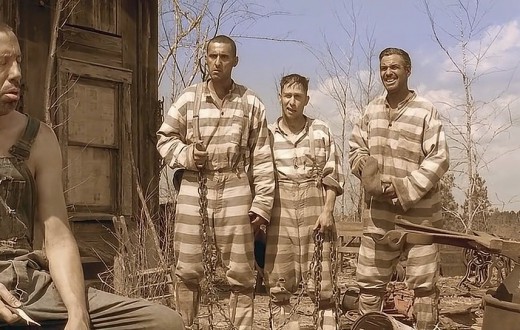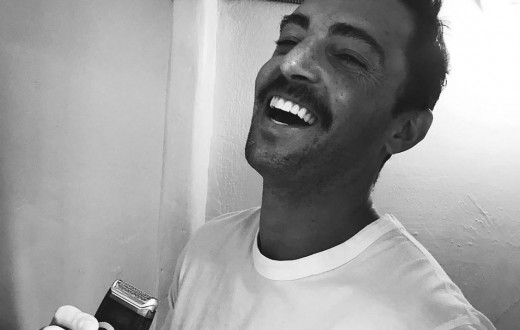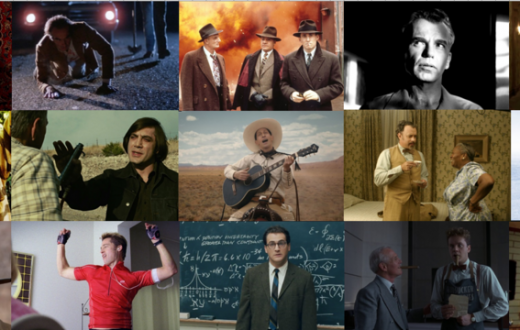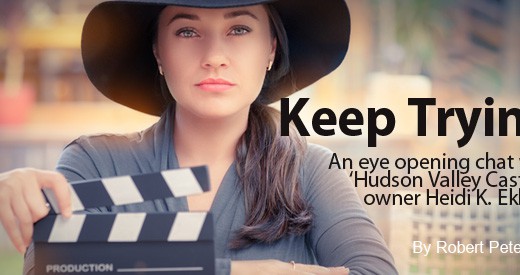When you’re a young actor just starting out and you hear veterans of the business chatting about this or that awesome-sounding audition they were sent on by their agent, it can sometimes hit you with a twinge of jealousy: why don’t I have an agent?
There is often some confusion among newer actors over the agent’s role. Keep in mind agents are professionals with a reputation; that’s their bread and butter. Of course one thing they have an eye for is physicality: if the role calls for a twenty-something Latino gang member and an agent sends his gray-haired, 50-something Caucasian buddy out to read for it, he or she won’t be an agent for long.
If you’ve ever been on a second or third audition for a particular role in L.A. or New York, you will sometimes walk into a waiting room full of actors who all have your same physical type. Actor John Carroll Lynch (Norm Gunderson in “Fargo,” and the terrifying Twisty the Clown in “American Horror Story”) tells about his early days with his agent sending him on audition after audition where he was one of several dozen balding, chubby, middle-aged actors.
But it goes far beyond physicality. Good agents aren’t in the habit of throwing every actor they know at every audition that comes along. Think of them more as surgeons than general practitioners: their job is to carefully apply specific actors to the needs of specific shows and films. A good agent is more like a casting director in that they have a knack for sizing up not only your physicality, but also your particular energy and vibe, and sending you to castings where they know you will be a good fit.
But the truth is, unless you are a child actor, a very specific type, have a truly unique look, or you have some killer recommendation from a wired-in industry pro, it just takes a while to get the credits necessary to make you appealing to an agent.
The bottom line is you are likely to have to function as your own agent for a while, at least until you build up a solid set of credits. So here are a few ways to maximize your bookings while you are on your way!
1. Open auditions
The good news is there are plenty of auditions out there for people without representation. Consult sites like NYCastings to see casting notices for hundreds of open auditions in film, commercial, and stage work. Better yet, sign up to receive alerts when an appropriate audition for your look comes along, and beat the competition to the starting gate!
2. Build your network
Keep a notebook that details every audition you attend: the casting directors’ names, their assistants’ names, the company they work for, and the type of roles and media they are casting for. This is a surprisingly small business no matter where you are. Stick around a while, and you will undoubtedly run into the same people numerous times. Having a name with a face to whom you can say a quick hello can be an invaluable edge. What’s more, once they know you and what you can do, don’t be surprised if you get direct calls from them when they are under the gun to cast someone of your type on short notice!
3. Get better
First of all, another section of your notebook should include any notes those casting directors gave you, any adjustments they had you make, or any advice they might have offered. You’d be surprised how much you can pick up from offhand remarks in castings that can help you hone your performance next time you see that particular casting director. Secondly, you should be finding ways to act even if you aren’t booked for anything. Take classes, start up an actor’s group, work monologues with a friend–anything to be continually refining your chops. After all, you are your own client for now: As an agent, you don’t want to send out an actor who isn’t at the top of his or her game, do you?
4. Create your own work
We live in a time when it has never been easier to get a short film or other project featuring your creativity in front of eyeballs. Think for a moment about how many actors got their start on YouTube, or by simply going for it, writing their own script and/or making their own short film? Names like Wes Anderson and Billy Bob Thornton spring to mind, and there are literally hundreds if not thousands of YouTube stars who have either hit it big or are on the verge. There are more networks and Internet outlets for entertainment than ever before, and they are constantly hungry for new material. Who’s to say the project you create with your friends in someone’s living room can’t be the seed from which a widespread reputation springs?
5. Stay positive!
One common trait among agents is a never-ending optimism. As an actor repping yourself, this is a great model to follow, not only when you’re wearing your agent hat, but as an actor as well. Nothing sells like positivity! Keep plugging away, stay on top of your acting game as well as your networking game, have some patience, and you will end up booking the roles you need in order to level up and land an agent who can take your career to new heights!







